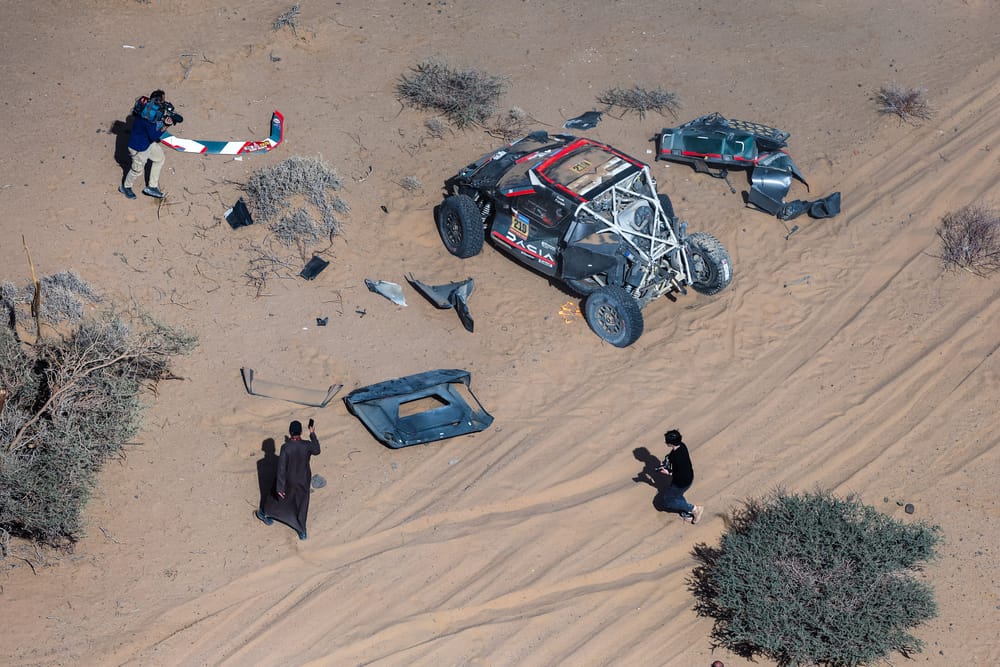The Dakar Rally's 2020 switch from South America to Saudi Arabia did not immediately bring about a changing of the guard when it came to who was starring in the marquee classes.
But at the sixth time of asking, in 2025, the marathon suddenly found itself with two head-to-head battles between competitors who hadn't won before - one in the Cars class, specifically in its flagship T1 category, and one in its Bikes contest.
Here's what you may have missed from this year's two-week edition of the marathon, which concluded this Friday with the second-closest finish in Dakar history.
Rough going for the usual standouts
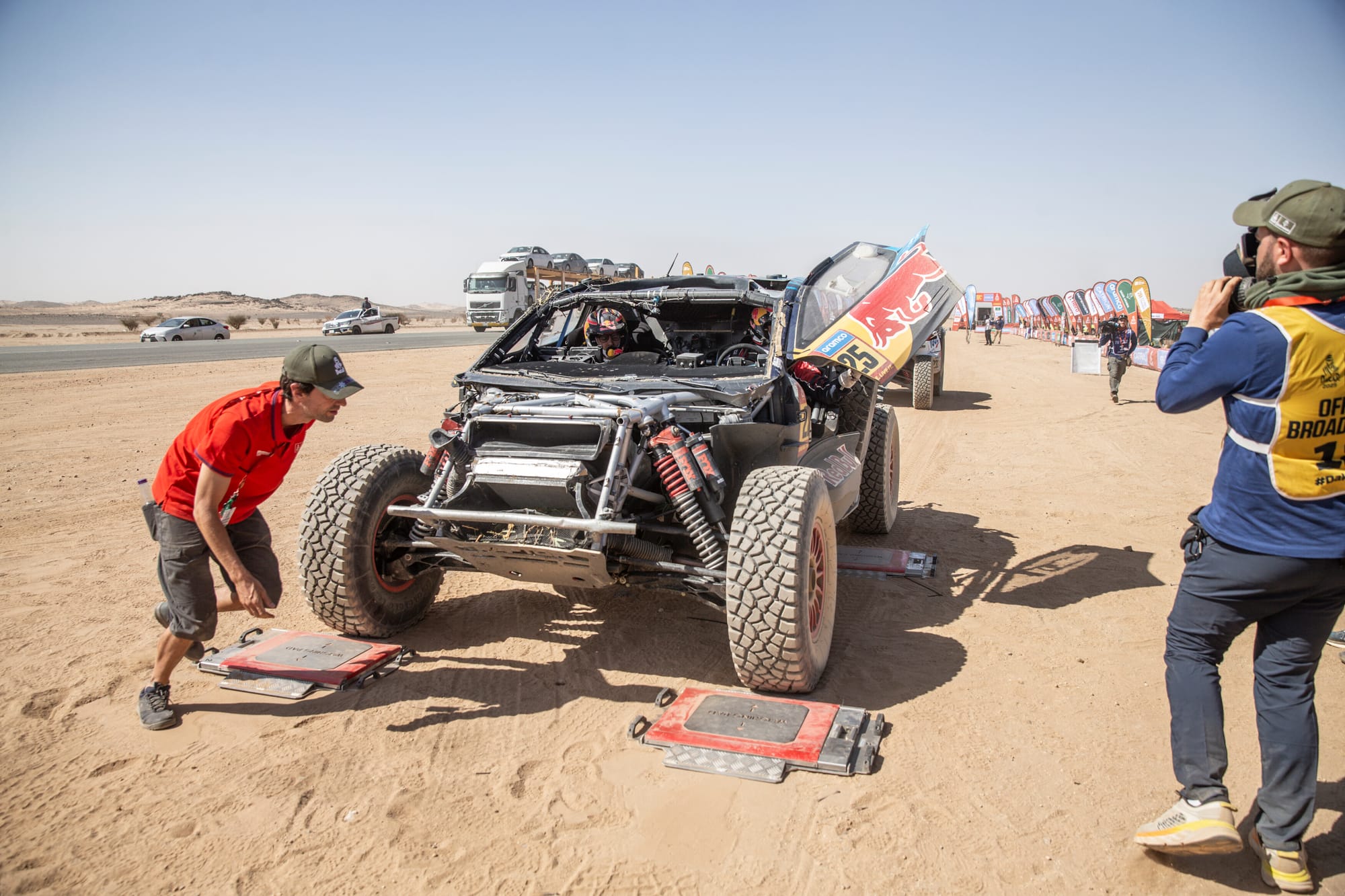
The 2025 Dakar was the first time in decades that it's run without its most successful competitor ever, 14-time winner Stephane Peterhansel. Following the withdrawal of Audi's factory team - which he drove for last year - Peterhansel elected for a Dakar sabbatical, and instead rode a Yamaha bike non-competitively on a bike on the stages of Dakar alternative Africa Eco Race.
His fellow Dakar staples may well have preferred to join them had they known how their rally would go.
Carlos Sainz Sr (pictured above), who won for Audi in its farewell last year, rolled his new M-Sport-run Ford Raptor immediately - during the two-day marathon stage early in the rally - and had to retire due due to the damage to the rollcage.
World Rally Championship legend Sebastien Loeb, still hunting for that elusive first Dakar win, followed suit shortly afterwards, excluded from the event - controversially, as he did not agree with the ruling - after likewise rolling and damaging the rollcage.
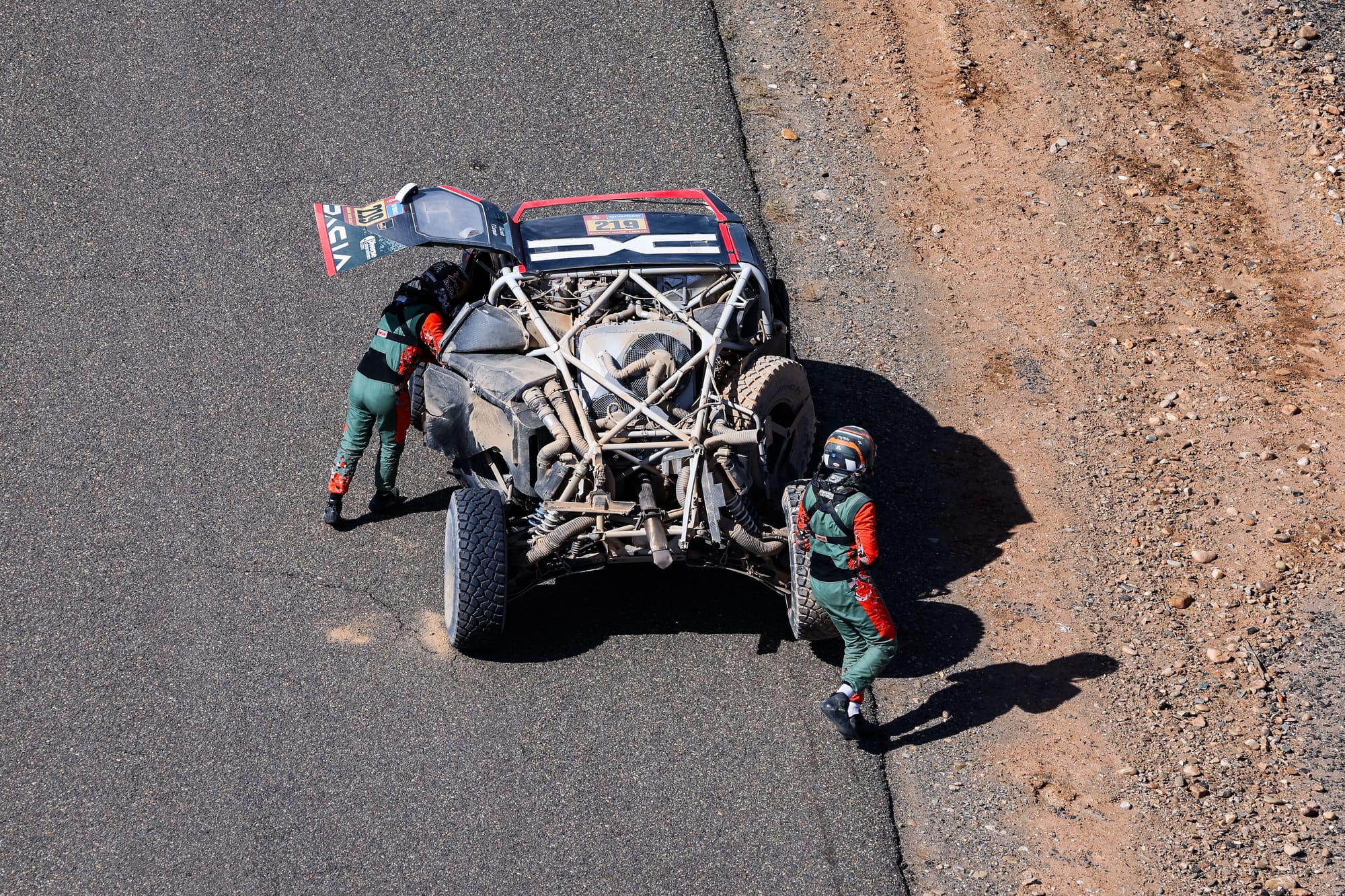
Loeb was part of a star-studded driver line-up for new manufacturer Dacia alongside Nasser Al-Attiyah, with both seen as victory contenders as the Dacia Sandrider is the successor of the Prodrive Hunter car that had already proven itself competitive.
But while Al-Attiyah indeed looked quick - inevitably so given he is almost certainly the current Dakar era's quickest outright driver - a mixture of a major mechanical failure, a major navigational error and a penalty for a missing spare tyre meant even the podium proved out of reach.
Local hero vs new star
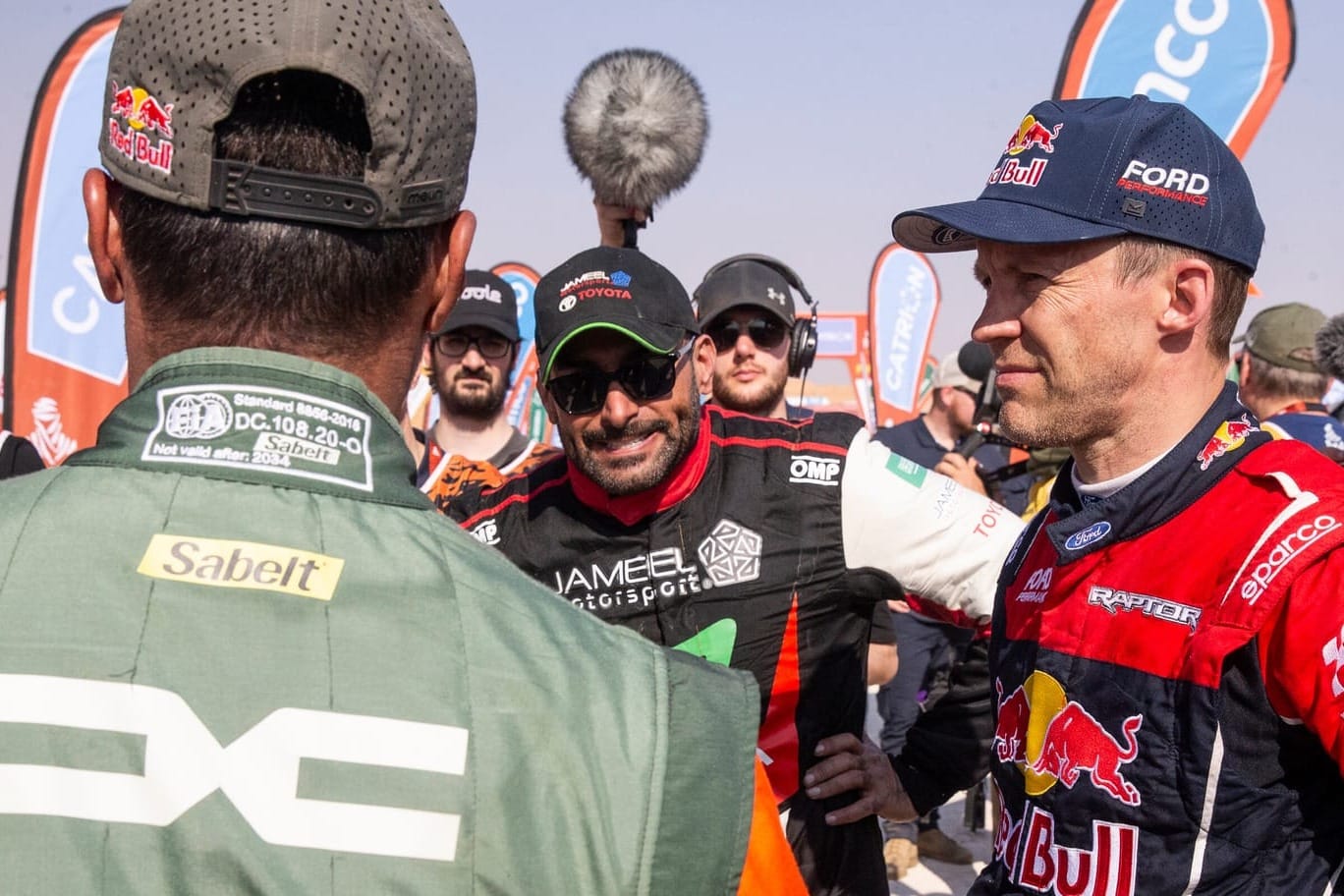
Toyota's three prior Dakar Rally wins had all come courtesy of Al-Attiyah, but in the brave new world of the 2025 edition it was racking up stage wins with a remarkably wide variety of drivers.
Coming into the rest day Toyota had won five stages with four different crews, and the prologue - the short opener that doesn't count for the classification but does set the running order for the first day - with yet another crew.
And in the end it did come down to two Toyota drivers: the young (by Dakar standards) 30-year-old Henk Lategan from South Africa, and 43-year-old Yazeed Al-Rajhi (pictured above, centre) from Saudi Arabia.
It was a breakthrough run for Lategan, a South African rally-raid star who had already win stages on the Dakar before but hadn't come close to fighting for the overall win and hadn't even run in 2024 due to a shoulder injury.
This time, he would lead most of the rally, though always felt that a relative lack of experience on the dunes of the Rub' al Khali in the second half of the marathon would come back to bite him.
Ultimately, it did. Before that, though, his lead had turned all but unassailable as an apparent error in the roadbook (handed out to crews by the Dakar organiser to be used in navigation) gave him an extra several minutes over Al-Rajhi. That section of the stage was ultimately nullified, which divided opinion among competitors.
Back in contention, Al-Rajhi then played the road position game well to deal a decisive blow to Lategan on the penultimate day of competition, bringing it home on the short final stage and winning by 3m57s.
Al-Rajhi, best known otherwise for having some WRC2 success a decade ago, was ultimately no shock winner despite it being his first triumph - given he had long shown his potential to get to the top of the Dakar one day, particularly once it switched to his native Saudi Arabia.
Ekstrom shows off his versatility
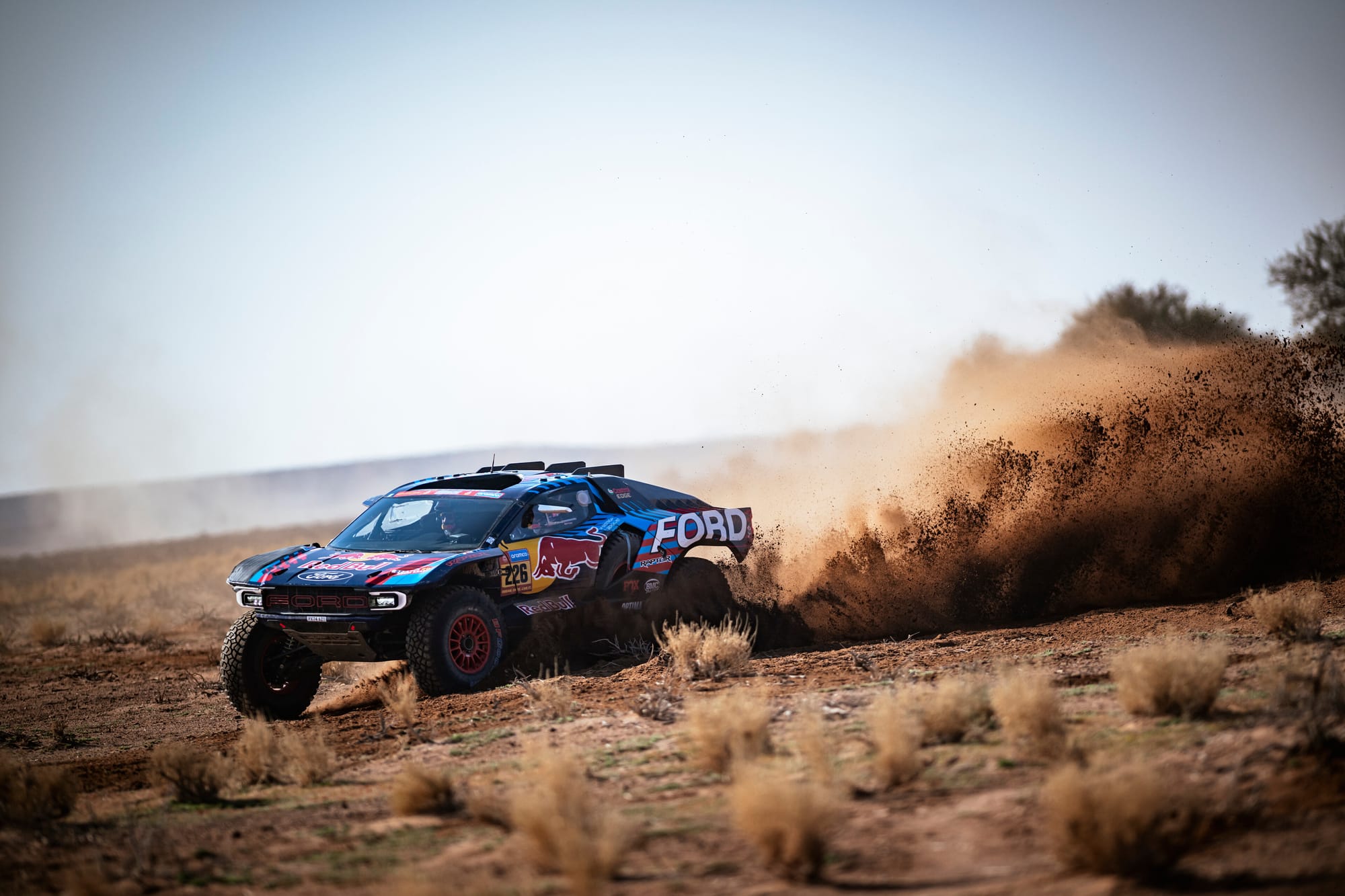
Al-Attiyah's bid to salvage at least a podium came up short as M-Sport ultimately bagged a Dakar 2025 podium - not from Sainz, nor from fellow Dakar veteran Nani Roma (who did win a stage), but from Mattias Ekstrom, he primarily of DTM fame.
One of the German touring car series' all-time greats after a long run in Audi factory ranks, Ekstrom has also driven in the likes of NASCAR, Australian Supercars and Extreme E - and won a World Rallycross title.
He was part of Audi's works Dakar effort but that only yielded stage wins. But this year he even flirted with victory contention - before ultimately coming home in third.
A big win for KTM
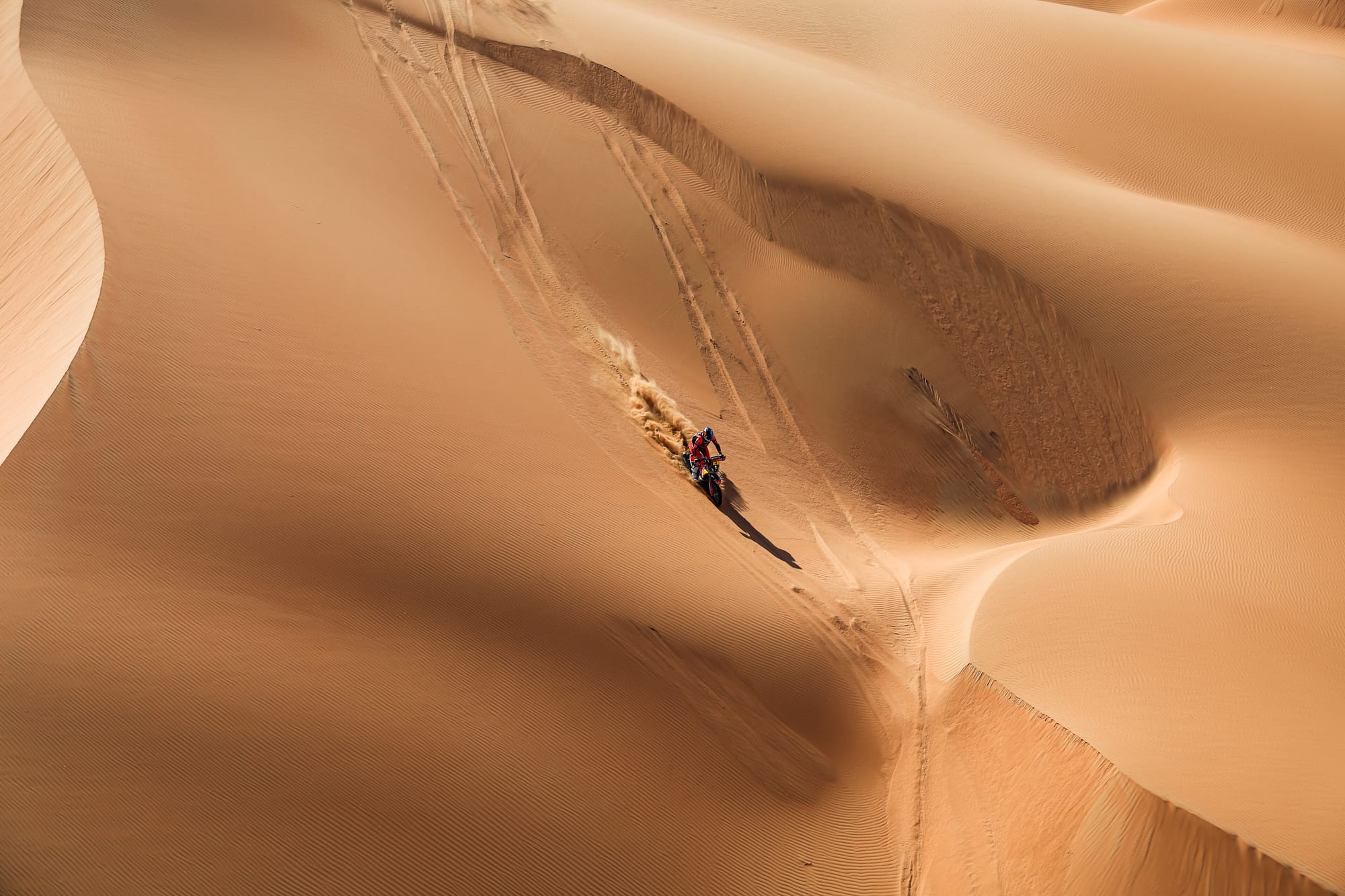
KTM, which is currently going through a process of administration due to liabilities totalling in the multiple billions, is unsurprisingly having all of its motorsport programmes questioned. But winning helps justify them, so this latest Dakar triumph has come at a good time.
Dakar dominance used to be a KTM calling card, but in recent years Honda has emerged as an incredibly stern rival. A run of 18 successive KTM triumphs - 19 if you count the replacement Central Europe Rally in 2008 - was followed up by Honda winning three in five.
The two brands were the protagonists again this time, albeit not through their familiar past champions. Instead, the aforementioned two-day 'chrono' stage allowed Australian rider Daniel 'Chucky' Sanders to take a commanding lead, and the only rider who looked in with any real chance of denying him the win was Spaniard Tosha Schareina.
Sanders hadn't been on the Dakar podium before, Schareina hadn't even cracked the top 10, but they were the faces of this particular KTM versus Honda (also Red Bull versus Monster) battle - with Sanders, and KTM, coming out on top in the end.
Other categories
The post-Kamaz Dakar power vacuum in the Trucks category was in 2025 filled again by Czech driver Martin Macik and his crew, Macik winning by well over an hour for a second successive year.
The Challenger (T3) class - for lightweight buggies - was dominated by Nicolas Cavigliasso, previously a winner in the now-discontinued Quad class, while the SSV (T4) class for even smaller and lighter vehicles went to first-time Dakar racer Brock Heger.
Heger's triumph means Loeb did get a win of sorts from this Dakar after all, as it was his Sebastien Loeb Racing team that fielded Heger in cooperation with manufacturer Polaris.


